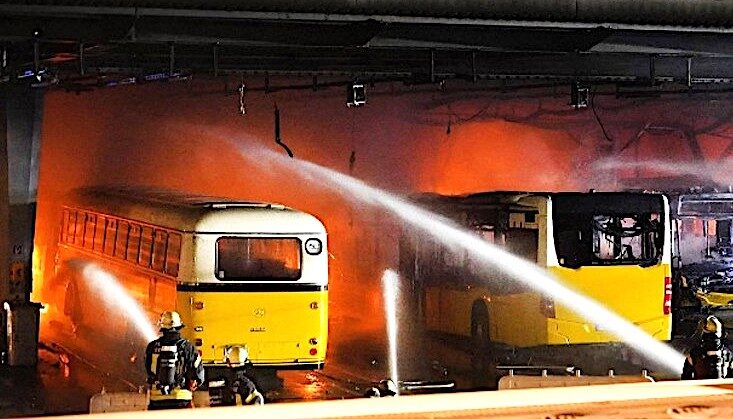Europa oplever et grønt transportboom. Salget er firedoblet siden 2018, og hver tiende nye bil, der sælges på kontinentet, er nu fuldt elektrisk, en andel, der stiger til fire ud af ti, når hybridbiler tages i betragtning. I Tyskland, hvor De Grønne er i forhandlinger om at blive medlem af en koalitionsregering, blev antallet af elbusser fordoblet sidste år i forhold til 2019.
Omstillingen fra diesel til el har ikke været helt problemfri. Tre busdepoter blev ødelagt af brand alene i år, hvor det seneste i Stuttgart i sidste måned ødelagde 25 busser og sendte en røgsøjle, der tårnede sig op over byen.
Kommentar: Delvist oversat af Sott.net fra 'Naive is an understatement': German safety official tells RT that risk of electric vehicle fires is 'completely unaddressed'
The fires prompted the cities of Munich and Stuttgart to suspend use of these battery-powered buses, and Heinrich Duepmann of Germany's Electricity Consumer Protection Association told RT that he shares their concerns - not just about buses, but electric vehicles in general:
"The risk of these fires, including in other locations such as bicycle basements or large apartment blocks, is completely unaddressed. Also, insurance companies are not yet tackling the issue."The lithium-ion batteries that power electric vehicles can catch fire if damaged, or in some cases during charging or spontaneously. Lithium burns ferociously on contact with air, and once ablaze, these fires can be extremely difficult to put out. While burning, lithium-ion batteries have been shown to emit toxic quantities of fluoride gas.
Aside from the fire risk, Deupmann is also concerned that as private electric vehicles become more popular, the country's electricity infrastructure is "completely undeveloped" to facilitate widespread fast charging.
"People have been too naive about this," he said, adding that "naive is an understatement."




Kommentar: It is a short-sighted assumption that the electric grid will be a continual and unlimited source of energy.
See also: